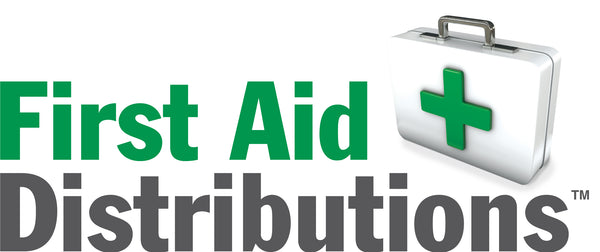Boating in Australia—whether a relaxed coastal outing near Perth, deep-sea fishing off the Great Barrier Reef, or a river exploration in Tasmania—delivers unmatched freedom, yet the marine setting poses distinct hazards requiring readiness.
A customised first aid kit is vital for secure boating, guaranteeing adherence to Australian Standards for maritime safety.
At First Aid Distributions, our Marine First Aid Kits, crafted by an intensive care paramedic, cater to varied marine contexts. This guide aids in picking the suitable kit, from compact options for short excursions to extensive sets for offshore journeys. Browse our selection to enhance water safety.
The Importance of Selecting the Right Marine First Aid Kit
Adhering to Australian Maritime Standards
Australian regulations mandate vessels carry first aid kits appropriate to their surroundings, crew numbers, and proximity to aid. From modest fishing craft to yachts heading offshore, a compliant kit fulfils legal obligations and equips for crises. Our post on conducting a risk assessment for first aid kits details evaluating marine hazards, assisting in choosing kits that match standards. For specifics, consult the AMSA Scale F first aid kit guidelines.
Customising Safety for Different Boating Activities
Each boating pursuit carries specific dangers—coastal jaunts might encounter minor scrapes, whereas offshore angling could face graver urgencies. Opting for a scenario-matched kit enables swift, efficient handling, minimising interruptions and safeguarding your group. Assembled in Bendigo, Victoria, our kits endure damp conditions, blending into your boating safety framework.
Picking the Ideal Kit for Your Boating Requirements
For Coastal Day Trips and River Adventures
Brief outings on tranquil waters, like river fishing or coastal leisure near Melbourne, suit a streamlined kit. The First Aid Kit Marine G Scale (check current stock availability) at $334.95 features a dust and water-resistant case (32cm x 42cm x 17cm) with quick-release wall bracket. It stocks basics such as plasters, antiseptic wipes, and gauze for small mishaps, ideal for compact vessels or daily ventures, maintaining portability and compliance.
For Offshore Fishing and Extended Trips
Far-off angling or prolonged yacht voyages, such as along Queensland's shores, necessitate thorough kits for distant emergencies. The First Aid Kit Marine F Scale (check current stock availability) at $415.95 fits boats up to six hours from help, supplying advanced items like burn dressings, trauma gear, and resuscitation masks in a sturdy, watertight case (32cm x 42cm x 17cm). This prepares for severe events, aligning with offshore safety norms. Note: Medications sourced separately.
Essential Factors in Choosing a Marine First Aid Kit
Evaluating Your Specific Risks
A maritime risk evaluation, per our blog, is key to kit selection. Factors include:
- Vessel Size and Crew: Smaller craft need one kit; larger yachts may require several across areas.
- Distance from Assistance: Near-shore needs essentials; far-off demands comprehensive tools.
- Environmental Hazards: Factor in saltwater, sun, or turbulent seas heightening injury chances.
- Activity Nature: Angling setups need tackle-injury aids; rescue craft prioritise trauma supplies.
Our expert-designed kits align supplies with these, assuring readiness and conformity.
Features Suited to Marine Conditions
Kits for water must resist harsh, moist settings. Seek:
- Waterproof Enclosures: Robust, dustproof cases as in Marine G and F Scales shield contents.
- Wall-Mount Options: Quick-release mounts allow swift access on swaying boats.
- Specialised Items: Essentials like burn aids, eye rinses, and thermal blankets for sea needs.
Our TGA-registered kits ensure quality and adherence across Australian waters.
Embedding First Aid in Boating Protocols
Strategic Onboard Positioning
Locate kits in reachable zones like cabins, controls, or quarters, labelled for rapid use. Larger boats benefit from multiples across sections. The Marine G's compact form fits small craft; Marine F suits expansive yachts. Secure storage withstands choppy conditions, upholding standards.
Routine Upkeep for Preparedness
Examine kits biannually—pre-spring and autumn—or pre-trip to confirm items are current. Our first aid kits include downloadable lists, with cost-effective refills for sustained compliance. Visit 205 Murphy Street, East Bendigo, VIC 3550, or contact for maintenance advice.
Fostering a Safety-Focused Boating Ethos
Prioritising Compliance
Updating kits routinely secures alignment with standards, shielding crews and dodging penalties. Our Bendigo-assembled, paramedic kits simplify this, adapted for coastal to oceanic realms.
Involving Your Crew
Instruct members on kit locations and usage to cultivate awareness. Standard briefings in Aussie boating circles ready all, from hobby anglers to pros, boosting collective safety per outing.
Conclusion
Opting for the proper marine first aid kit is crucial for Australian boating safety, ensuring standards compliance and crisis readiness. Our paramedic-designed Marine First Aid Kits deliver customised solutions for all exploits. Head to our Bendigo store or shop first aid kits to gear up your boat. Enjoy free shipping over $200 and newsletter subscriptions for safety updates.
FAQ
Q1: Why are marine first aid kits required on boats?
They fulfil Australian Standards, handle marine emergencies, and protect crew wellbeing in isolated water settings.
Q2: Selecting the appropriate marine first aid kit?
Review vessel, distance, and risks; choose Marine G Scale for near-shore or Marine F Scale for offshore, with downloadable contents for verification.
Q3: Inspection frequency for marine first aid kits?
Biannually or pre-voyage to keep supplies valid and standard-compliant, with refills simplifying upkeep.
Q4: Optimal placement for marine first aid kits?
In prominent areas like cabins or helms, using water-resistant cases and labels for immediate retrieval.
Q5: Purchasing marine first aid kits?
Shop online for prompt nationwide delivery or visit Bendigo for personalised recommendations and kit assessments.

